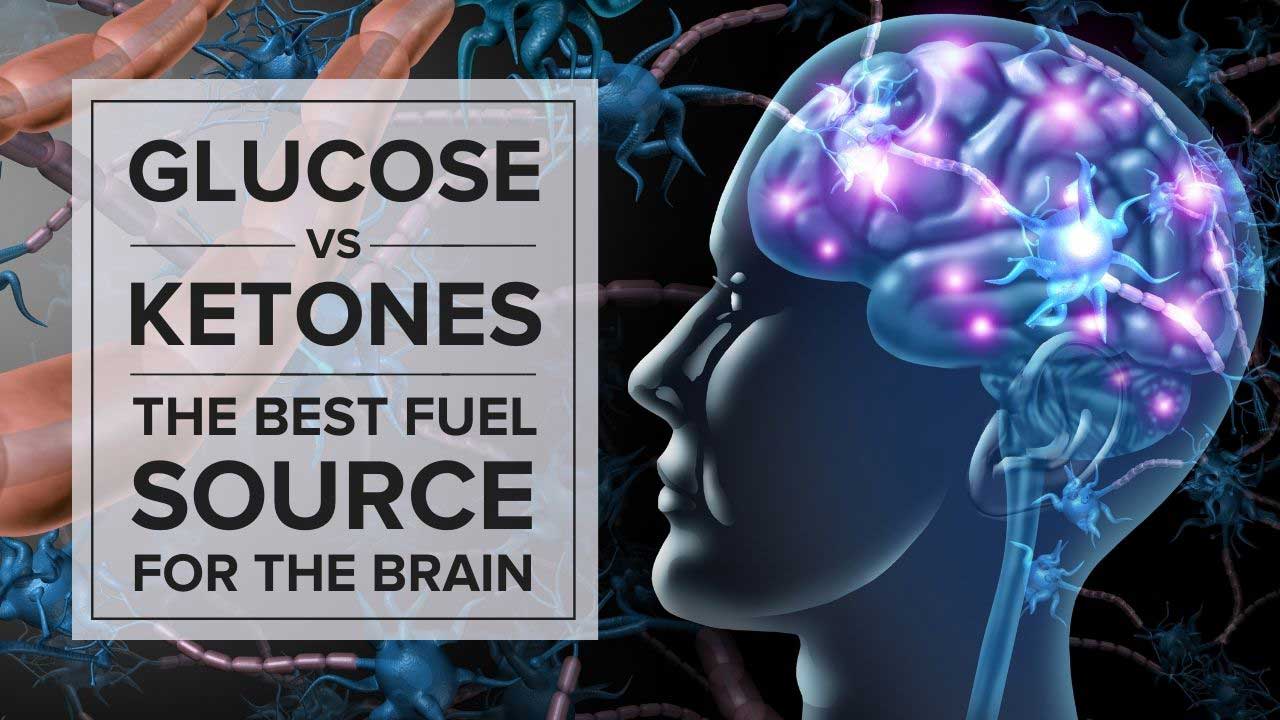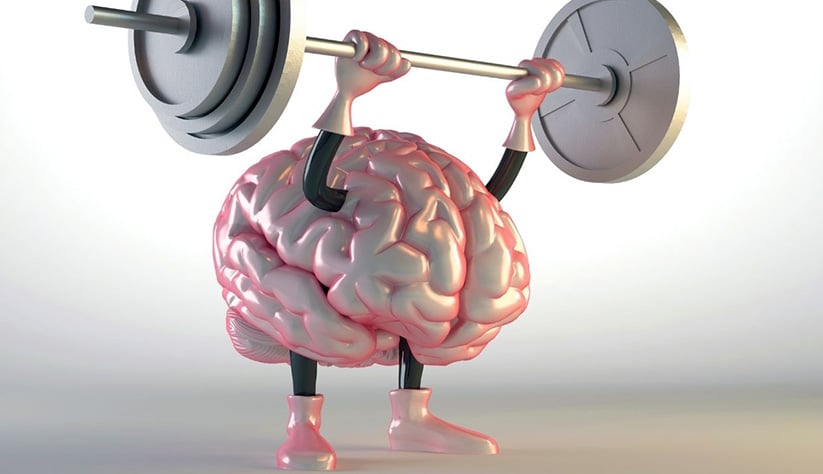
Can the Brain Use Ketones? Choosing the Optimal Brain Fuel
With the rise of the ketogenic diet, there has been a significant debate over which form of biological “fuel” helps your brain run optimally.
For the vast majority of your life, your brain oxidizes glucose for energy. When you eat a low-carbohydrate diet or fast for extended periods of time, your liver can convert stored fatty acids into ketone bodies to be used as a secondary fuel.
In short periods, like those found in intermittent fasting, the evidence suggests that these ketone bodies can actually have a strong, beneficial effect on certain tissues.
However, in the ketogenic diet, which is designed to put your body in a state where your brain oxidizes primarily ketone bodies, there can be some unwanted long-term side effects.
In this article, we’ll discuss some of the science behind these different “fuel” sources, as well as the benefits of ketosis in small instances, like intermittent fasting.
Then, we’ll explain why the ketogenic diet — though it may have some immediate health results — is actually not ideal for your health in the long term.
Brain Function on the Ketogenic Diet

Your body naturally functions by primarily converting glucose into ATP, the cellular form of energy. Cells in your liver can create ATP from fatty acids through a process called de novo lipogenesis, but your brain cannot
Your brain accounts for 25-40% of your energy expenditure, and glucose is the preferred fuel of choice.
However, when glucose is not available, your liver produces a family of ketone bodies which include acetoacetate, beta-hydroxybutyrate, and acetone. Acetoacetate and beta-hydroxybutyrate are metabolized by multiple tissues including your brain as an alternate fuel source when glucose is limited.
The keto diet is an intentionally low-carbohydrate diet designed to put your body in a continuous state of ketogenesis.
Ketosis vs Ketoacidosis
Ketosis and ketoacidosis both cause the levels of ketones in your blood to increase.
Ketosis occurs when glucose is limited, while ketoacidosis is a life-threatening condition.
Like we mentioned above, ketosis occurs when glucose is limited – resulting in the production of ketone bodies by your liver as an alternate fuel source for your brain, muscle, and other peripheral tissues.
Diabetic ketoacidosis on the other hand occurs in an insulin deficient state, which results in an extremely high blood glucose value, liver ketone production, extreme thirst, fatigue, and unexplained weight loss.
Brain Health Benefits of Keto

The evidence has shown that your brain can function for extended periods of time in ketosis, and may actually have some positive benefits, which we’ll touch on below. However, there are two things to be aware of as we explore the benefits of ketosis.
The first is that many of the metabolic benefits of ketosis often coincide with rapid weight loss, reduced blood glucose, reduced triglycerides, and reduced blood pressure.
The second is that the ketogenic diet, despite its immediate benefits, can actually have some very negative side effects in the long term, including a significantly increased level of liver and muscle insulin resistance in addition to increased LDL cholesterol.
Ketosis and Alzheimer's Disease
There has been quite a bit of research done recently on the effect of the ketogenic on the advancement and incidence of Alzheimer’s disease.
We wrote a comprehensive article on the presence of brain insulin resistance and type 3 diabetes which gives you a detailed overview of the research in this field.
However, the research isn’t decisive as to how ketone bodies affect these conditions directly, or if other factors are at play.
Some research implies that the ketone bodies themselves benefit the brain, while others imply that the short-term improved cardiovascular health provided by a ketogenic diet is the main factor.
Ketosis and Parkinson's Disease
The cardiovascular benefits of ketosis come into play here as well, suggesting that the ketone bodies of a high-fat ketogenic diet may be a valuable asset in fighting Parkinson’s disease.
However, the key here again is that ketone bodies may help fight this disease, or may simply provide an alternative that improves cardiovascular health in the short term, and in turn helps fight this neurodegenerative disease.
The two studies were either focused on small group sizes or pilot studies judging feasibility, so there’s a need for more research here.
Ketosis and Congenital Hyperinsulinism
Another area where a ketogenic diet has shown some short term benefits is through the prevention of seizures in a patient with congenital hyperinsulinism. This diet, in addition to medication, helped control the insulin levels in the patient, and had a beneficial effect.
It’s important to note that this was a case study done on a single patient, so the effects are still unclear, and require more investigation.
Ketosis and Traumatic Brain Injuries
The cognitive benefits of ketosis show some promise in other areas as well, though many projects are still in early phases and have not reached clinical trials.
Animal studies of the ketogenic diet have shown that ketones present a possibly favorable alternative to blood glucose after traumatic brain injury, and it is theorized that in these particular cases ketones can be ‘easier’ on the brain as it recovers.
Ketosis and Memory Loss
Other studies have shown ketogenic diets to slightly improve cognitive function in those with memory loss, though it’s theorized that this connection may be a result of improved blood and cardiovascular activity, rather than ketones’ favorability as a brain fuel.
Ketosis and Brain Function
And finally, ketosis has been linked to slightly improved brain function in those at a higher risk for Alzheimer’s or mild cognitive brain impairment.
This is another area where further human research is needed, with existing research limited to both healthy rats and aged rats.
Are Ketone Bodies the Best Brain Fuel?
In essence, the research has shown that ketosis itself is not an unnatural or even an unhealthy process, and the research shows that ketosis may actually have some benefits for your brain.
However, there’s little research that compares ketones to glucose head to head in terms of brain performance, so it’s hard to categorize either fuel source as “the best” specifically for your brain.
Taking a broader perspective though, a ketogenic diet can actually present long-term metabolic complications. Though ketosis has short term benefits including rapid weight loss, reduced blood glucose, reduced triglycerides, and reduced blood pressure, ultimately it impairs insulin action in your liver and muscle, which can set the stage for an increase in the risk of prediabetes and type 2 diabetes in the long-term.
One alternative to more safely and sustainably produce ketone bodies, while also adding the benefits of weight loss and reduced insulin resistance, is intermittent fasting, strategic periods of fasting that can put your body into ketosis without requiring a high-fat diet.
And when intermittent fasting is combined with a low-fat, plant-based, whole-food diet, you can add the health benefits of eating fruits and vegetables, you can multiply the mental and physical benefits of ketosis, without any of the negative side effects.
To learn more about other ways to get these brain, body, and blood glucose benefits, and put together a dietary plan that sets you up for long term success, you can explore our coaching program, which includes expert guidance, a lively community, and a vast library of online resources.
Lower Your A1c and Get to Your Ideal Body Weight ... Guaranteed

Your results are guaranteed. Join more than 2,000 members today
Personalized coaching puts you in immediate control of your diabetes health, helps you gain energy, improves your quality of life, and reduces or eliminates your meds.




